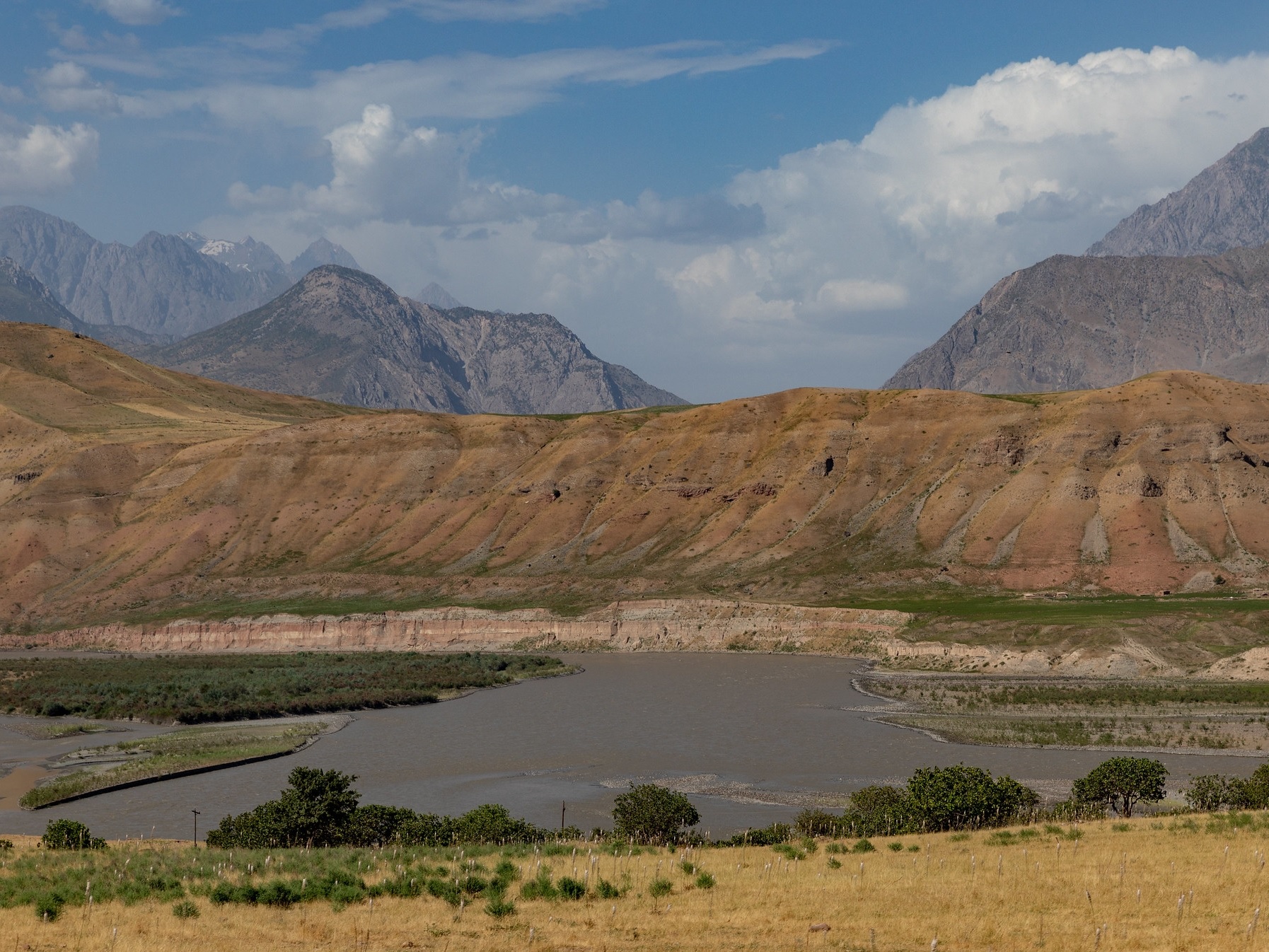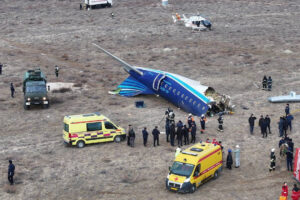Tajikistan
The official Chinese news agency Xinhua reports that China has opened a “super observation station for climate and the environment” near the Tajik city of Shahrtuz in the southeastern Khatlon region. Xinhua says the station will monitor “dust, pollutants and meteorological elements in key areas of Central Asia,” citing a Chinese expert. The station’s location near the Tajik-Afghan border suggests that the facility may have a dual purpose: it could also be used to keep an eye on Islamic militants operating in Afghanistan. The Shahrtuz facility is part a network of monitoring stations developed by China’s Lanzhou University. According to a report prepared by the Australian Strategic Policy Institute, Lanzhou University is one of at least 68 Chinese institutions of higher learning “officially described as parts of the defense system or [which] are supervised by China’s defense industry agency, the State Administration of Science, Technology and Industry for National Defense (SASTIND, 国家国防科技工业局).
Russia-China-Central Asia
Evidence is mounting to justify the imposition of secondary sanctions against Kyrgyzstan and Kazakhstan for helping Russia sustain its war effort. An investigative report published June 22 by Radio Free Europe/Radio Liberty (RFE/RL) shows that companies based in the two Central Asia states are exporting dual-used components to Russia, circumventing existing sanctions imposed on Moscow by the United States and European Union to hinder the Kremlin’s ability to wage war against Ukraine. “Russian imports of a range of dual-use goods from Kazakhstan and Kyrgyzstan have skyrocketed since the start of the war, including electronics produced by Western technology giants such as U.S. firms Texas Instruments and Analog Devices, whose components have been recovered from Russian weapons operating in Ukraine,” the RFE/RL report states. Russian companies that have received goods from Kyrgyz and Kazakh firms have links to Russia’s defense industry, the RFE/RL investigation determined. Click here to read the full report.
Russia seems to be embracing an “IF-you-can’t-beat-them-join-‘em” approach when it comes to competing with China for economic influence in Central Asia. Moscow is trying to get in on a major Beijing-led rail project, but so far China seems reluctant to give Russia a piece of the action. Russian Railways OJSC (RZD) has interest in taking part “both in the construction and operation” of the China-Kyrgyzstan-Uzbekistan railway, a top company official, Sergey Pavlov, said in Telegram post on June 13. Since then, the company has only heard crickets. Even at the time, Pavlov acknowledged that only preliminary discussions had occurred with China and there is no timetable for the signing of any cooperation agreement. China’s silence on the matter appears to be an indicator of its lack of enthusiasm for Russian participation in the project.
Russia also is also pushing a trans-regional highway construction project that is having trouble attracting financing. In an interview with the TASS news agency, Vyacheslav Petushenko, board chairman the state-controlled company Avtodor, revealed that Russia has prepared a feasibility study for the Meridian highway project connecting Russia and China via Kazakhstan. However, it is still unclear how or when the roadway will be built. “There is a track in the five-year plan, but it is still difficult to say when we will start implementing it,” said Petrushenko. “The question of financing is open.” Reports earlier indicated that the Eurasian Development Bank might provide financial backing, but now it appears the bank’s interest in the project is waning.
In a positive development for Moscow, the Russian Energy Ministry’s Telegram channel reported that Russia and Kazakhstan have extended an agreement “on the transit of oil through Kazakhstan with an increase in volume up to 10 million tons per year until the end of 2033.” This deal reportedly ensures fulfillment of an agreement concluded in May between KazTransOil JSC and Rosneft on the transit of Russian oil to China. (See details in one of our previous issues).
Central Asian leaders, channeling a communist-era practice, lavished praise on Chinese supremo Xi Jinping on the occasion of his 70th birthday on June 15. The birthday salutations hailed Xi for his “wisdom”, “high authority” and “unprecedented successes” in “building a modernized socialist state,” while expressing a desire to strengthen Central Asian-Chinese ties. It is worth noting the congratulatory messages from the presidents of Uzbekistan, Kyrgyzstan and Turkmenistan all followed a similar script, each ending with wishes for Xi’s “good health and further success.” The leaders of Kazakhstan and Tajikistan did not publish the full texts of their messages, only excerpts.
Kazakhstan
Kazakhstan and China are entertaining dreams of taking on Hollywood. Kazakh Ambassador to China Shakhrat Nuryshev met earlier in June with Jonathan Jian Shen, the chief producer of the first Kazakh-Chinese joint film production, a music-themed drama, titled “Composer.” The two discussed ways to expand joint cooperation, agreeing to “continue working contacts,” the Kazakh embassy website reported. China has worked assiduously in recent years to project “soft power” across Central Asia via film, mass media and cultural initiatives.
Uzbekistan
A freight train has departed the Chinese city of Lanzhou bound for the Uzbek capital Tashkent, marking the start of a deal to build a multimodal rail route connecting China, Kyrgyzstan and Uzbekistan. The train of 30 containers carrying solar panels worth $2.5 million is a collaborative effort involving China’s Zhejiang Union of Railway Logistics, Uzbekistan’s Temir Yollari (Uzbek Railways) and Kyrgyzstan’s Temir Zholu (Kyrgyz Railways). The train left China on June 9 and is estimated to take 15 days to complete the journey.
Uzbek Minister of Investments Laziz Kudratov recently met with the head of China Energy, Song Hailiang, to discuss the construction of solar power farms in Uzbekistan’s Kashkadarya and Bukhara regions. The two also discussed construction of a cement plant in the Samarkand Region. The solar farms could begin generating power by the end of the year, according to a report issued by the ministry’s press service. In addition, Song expressed a desire for Chinese-Uzbek cooperation “to further modernize energy systems in the regions and train specialists in the field of green energy production.”
Uzbek Central Bank representatives met with a delegation from China’s Banking and Insurance Regulatory Commission (CBIRC), headed by Tang Chunlin, Director General of the commission’s Bureau of Banking Inspection. According to a report circulated by the Uzbek Central Bank’s press service, the discussions focused on “the organization and methodology of bank inspections, as well as the problems of regulating the activities of financial institutions.” The Chinese delegation also discussed projects that are financed by the Export-Import Bank of China (CEXIM).
Uzbekistan is creating a new position, transport adviser, at its embassies in China, Kazakhstan, Azerbaijan, Iran and Latvia. The move follows a presidential decree on ways to stimulate the development of both international and domestic transport links.
Kyrgyzstan
Kyrgyzstan is scrounging for cash to build its section of the China-Kyrgyzstan-Uzbekistan railway. Kyrgyzstan’s Commerce Minister, Daniyar Amangeldiev, made a pitch for financial help during a speech at the St. Petersburg International Economic Forum, describing the project as “very profitable and attractive.”
Kyrgyzstan’s government has drastically increased its sale of gold during the first four months of 2023. According to a report published by Sputnik.kg, Kyrgyzstan sold 1,411.8 kg of gold, worth about $88 million during the first third of 2023. During all of 2022, the outlet noted, Kyrgyzstan sold 290.5 kg of gold.
Source : Eurasianet









